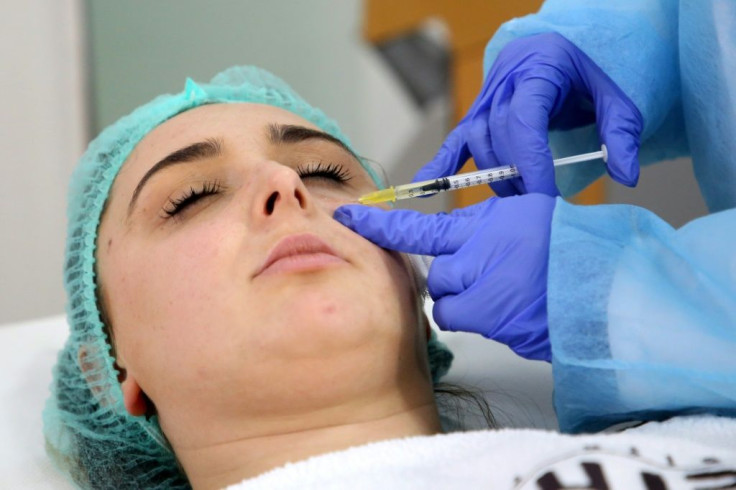People Who Got Botox Reported Lower Incidence Of Anxiety, Study Finds
KEY POINTS
- Researchers scoured a massive FDA database of Botox effects
- Those who got Botox at four injection sites had 22 to 72% lower anxiety risk
- The study was published in Scientific Reports
A study involving 40,000 people has found that those who got Botox had "significantly lower" anxiety incidence.
Botox is a medication that's derived from a bacterial toxin, the University of California-San Diego (UC San Diego) noted in a news release. Also known as Botulinum toxin, many people know it more as a treatment that's injected to relax wrinkles, but it is actually a more diverse treatment than some might think. In fact, it is also used to treat other conditions such as migraines, excessive sweating, muscle spasms and incontinence.
"A large number of diverse adverse effects are being reported to the FDA and the main objective usually is to find those harmful side effects that had not been identified during clinical trials," Ruben Abagyan, Ph.D., lead of the study and professor of pharmacy at UC San Diego, said in the university news release. "However, our idea was different. Why don't we do the opposite? Why don't we find beneficial effects?"
Botox Injections At Different Sites
For their new study, published Tuesday in Scientific Reports, the researchers looked at the U.S. Food and Drug Administration's (FDA) Adverse Effect Reporting System (FAERS) database wherein almost 40,000 people reported some adverse effects they experienced after undergoing Botox treatment.
These people got the treatment at different sites and for a variety of reasons, ranging from cosmetic to spasms and neck pain. For instance, the use of the medication for migraine was injected in the facial and head muscles, while Botox for spasms was administered in the upper and lower limbs.
They excluded the participants who were using antidepressants, antipsychotics or anxiolytics in their study.
Lower Anxiety Risk
The researchers found that those who were treated with Botox reported anxiety "significantly less often" compared to those who got different treatments for the same conditions. Specifically, those who received Botox in four injection sites reported 22 to 72% lower anxiety risk, UC San Diego noted.
"Patients who were administered BoNT (Botulimnum Toxin) had a significantly lower incidence of anxiety and anxiety-related AE reports, compared to the control groups," the researchers wrote, adding that it was observed "not only for cosmetic use in facial muscles" but also for "other indications and injection sites," which included migraine (facial and head muscles), spasms and spasticity (upper and lower limbs, excluding facial muscles) and torticollis and neck pain (neck muscles).
Botox Benefits Against Depression, Anxiety
According to the researchers, the results are "largely in line" with their 2020 study, in which they also found that people who received Botox injections at six different sites reported depression "significantly less." However, the researchers believe that the mechanism for its benefits in reducing depression and anxiety may be different.
The researchers do have a few mechanisms that they believe are "worth investigating." For instance, it's possible that the Botox is being transported to the part of the central nervous system that's involved in mood and emotions, or perhaps because the Botox is being used to treat chronic conditions that contribute to anxiety, UC San Diego noted.
For now, more studies need to be conducted to truly understand how Botox works against these conditions and the best way to administer it for anxiety.
Botox For Mental Health
The fact that there was a decrease in symptoms "regardless of injection site" puts to rest the suggestion that the patients are simply happier because they have fewer wrinkles, UC San Diego said. According to the researchers, this shows the potential of Botox injections in managing mental disorders.
"(O)ur findings show that BoNT administered for various indications and injection sites may have a protective effect against incident anxiety," the researchers wrote. "Though there are effective pharmacological and psychotherapeutic treatments for these disorders, there is a need for further therapeutic options and BoNT may be one of them."

© Copyright IBTimes 2025. All rights reserved.






















